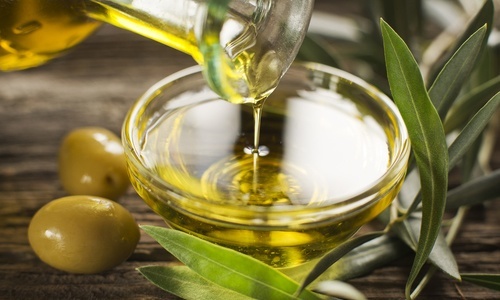


For generations, household and professional cooks have used olive oil and even extra-virgin olive oil. Culinary history coupled with a solid track record can’t be wrong, so let’s look at the science behind this wondrous oil and determine fact from fiction.
All oils are made up of different types of fat: Monounsaturated, polyunsaturated and saturated fats. We used to believe saturated fats were harmful to our health, while monounsaturated and polyunsaturated were the optimal choices, but recent studies have shown saturated fat can actually be healthy.
Saturated fats are known as fats that solidify at room temperature. They have zero double bonds and are completely “saturated” with hydrogen molecules. This makes them a sturdy fat that lends nicely to higher melting points than less-saturated fats, such as monounsaturated and polyunsaturated fats.
There are several subtypes of saturated fats: Short, medium and long. Our body has uses for each subtype. While we once thought butter and coconut oils were bad for us, we now understand that these fats can belong in a healthy diet.
For example, butter contains short-chain fatty acids such as butyrate, which help provide energy for the gut as well as protect us from digestive issues. Coconut oil contains medium-chain triglycerides that serve as direct fuel for our cells. Medium-chain triglycerides in coconut oil help us burn fat, not store it.
It turns out sugar, not fat, is the culprit for belly fat and love handles. Don’t fear saturated fat; enjoy it in moderation.
Unlike saturated kinds, polyunsaturated fats have several double bonds, which means they have given up their hydrogen molecules and have become less sturdy. These fats are more fluid and liquid at room temperature, which makes them great for our arteries and health.
Because they have several double bonds, they are much more fragile than saturated fats. When exposed to heat or light, they become more fragile and tend to break down and oxidize. Oxidized fats are dangerous for your health and your waistline.

 233k
233k  41k
41k  Subscribe
Subscribe 
